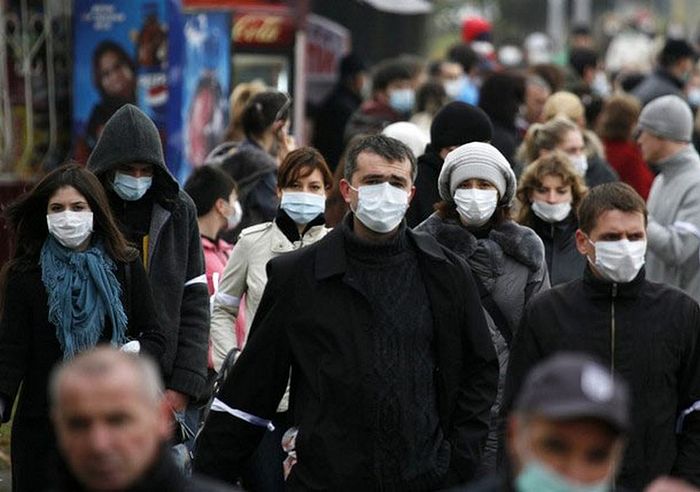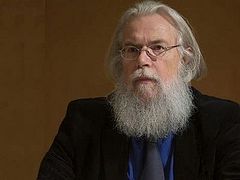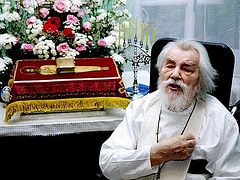It is almost two months now since the Coronavirus has taken hold of our lives and we have been in lockdown, confined to our homes except for necessary trips to work or for food. People have fallen seriously ill, and some have died. Health workers have shown admirable courage and perseverance in the face of adversity, one of humanity’s greatest characteristics. There have undoubtedly been some positive aspects. We have had time, some of us, to recollect, to pay attention to aspects of our lives that we had perhaps neglected. Of course, no one wants this to continue for ever, but we have perhaps understood that life is not about production and movement, the earth is not an amusement park, the environment has had time to recover, CO2 emissions are down and fish have been spotted in the canals of Venice. We also have a heightened sense of our own mortality. This makes us humble and a little less proud. In a sense, we have been forced to listen, and this is important because to LISTEN you must be SILENT, you must slow down.
There have been various debates as to the cause of this outbreak: it escaped from a lab, it was a bat, it was poor hygiene in a fish market. I am not a scientist and I do not know the cause, but it seems to me that while there is always a superficial reason for something (something or someone we can blame), there is always also an underlying reason (where the blame has more perhaps to do with ourselves).
I work with word connections. Language is like the environment – there is much more to it than may initially appear to be the case. We treat them both two-dimensionally, as having been put there for our own use. But they have a deeper meaning, hidden secrets which only come to light when we stop to pay attention, when we look at them less for our own profit (in this case we see nothing at all) and more for what they themselves might have to say. Scientists examine life under the microscope, they observe and take notes, hidden wonders come to view that may have something to tell us about the way we lead our lives.
Language is just the same. Words have their own meaning, not just the meaning we would give them. And this hidden meaning can be very illuminating. This hidden meaning can be unearthed in the following ways: by rearranging the letters (sometimes reading them back to front) and by making changes to the letters according to where in the mouth they are pronounced (phonetics), according to their position in the alphabet and according to their appearance (a letter may be turned upside down, for example).
It seems remarkable to me that no one has noticed the name of the city where the virus began, WUHAN in China – if we rearrange the letters and turn the W upside down – spells HUMAN. I saw a video of some inhabitants of Wuhan describing their experience of the lockdown, and they were very like anybody else – human beings with their family ties, their hopes and aspirations, their sense of humour, their sense of right and wrong. Isn’t that what defines us? Hasn’t the virus to some extent reminded us of what we hold in common?
The Coronavirus is often referred to by another name: COVID-19. Now this time instead of paying attention to the appearance of the letters, we are going to take a step in the alphabet. If we change one of these letters according to its position in the alphabet – and of course rearrange the letters – we get VOICE. So perhaps the underlying reason for the Coronavirus is to make us hear the human voice, to hear human need.
You may think I’m making this up. Well, I’ve worked with language long enough to know that these are not isolated examples. Let us look at the word VIRUS. I wonder if it reminds you of any other word in the English language. I have mentioned three ways of making word connections – it is also possible to repeat a letter or to add a letter (especially a final e). You will then see that VIRUS is in SURVIVE – the purpose of the virus is to survive, and our purpose, when we catch the virus, is also to survive. But surviving, as any adult will tell you, is not always easy.
Now here comes the difficult part, because you cannot make word connections without knowing your phonetic pairs – pairs of consonants that are pronounced in the same part of the mouth. One such pair is f-v – both these letters are pronounced with the teeth on your lower lip, the only difference is that f is voiceless and v is voiced (you feel a vibration in your throat when you say it).
If we apply this pair f-v, it shouldn’t be too difficult to see that SURVIVE contains I SUFFER. Well, yes, we do suffer in this life, but isn’t that the point somehow – that we are meant to rein in the ego, not to succumb to our selfish desires, not to want everything for ourselves, but to love the other? To love the other – ah, there is the secret! Would it surprise you if I told you these two words, LOVE and OTHER, are connected?
The vowels, o and e, are the same. Then there is the phonetic pair l-r (both these letters are pronounced with the tongue against the roof of the mouth), and the alphabetical pair t-v (we take a step in the alphabet, as we did before with d-e in COVID, but in this instance we miss out the intervening vowel, u). After that, all we have to do is add the letter h, which represents breath; h and e are the most commonly added letters.
I think the Coronavirus has brought out much love for the other in society. While there has been much suffering, there has also been great appreciation for the work carried out by doctors, nurses, shop staff, factory workers, waste collectors, couriers… The people who help our lives to function. In a way, with the Coronavirus, life has been stripped down to its bare necessities, to what is necessary. This doesn’t mean we want to continue in this way – we don’t – but it does remind us of something important. Love for the other.
So language can be seen to confirm what many people have felt – that in this difficult time it is important to have respect and love for the other, to appreciate what people do to make our lives better, to hear the human voice of the other – not to see people as two-dimensional, as put there for our own use (like language or the environment), but rather as human beings with their own intrinsic value. This seems to me to be the experience of the vast majority of the human race. Language is just confirming it.





